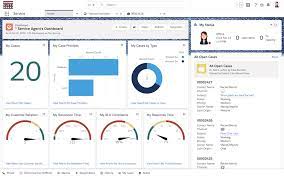You should customize Salesforce to tailor the CRM platform to your specific business needs, optimize operations, enhance data management, improve user experience, and drive business growth and efficiency.
Here’s a more detailed breakdown of why Salesforce customization is beneficial:
1. Aligning with Unique Business Needs:
- Tailored Workflows:Customization allows you to adapt Salesforce to match your unique business processes and workflows, rather than forcing your business to conform to a standard CRM structure.
- Specific Data Requirements:You can create custom objects, fields, and data structures to capture and manage the data that is most relevant to your organization.
- Personalized User Experience:Tailor the user interface and navigation to create a more intuitive and efficient experience for your users.
2. Enhancing Efficiency and Productivity:
- Automation:Automate repetitive tasks and processes through workflows, approval processes, and custom code, freeing up your team to focus on higher-value activities.
- Improved Data Management:Customization enables you to capture, organize, and manage data more effectively, leading to better insights and decision-making.
- Streamlined Reporting and Analytics:Create custom reports and dashboards that provide the specific insights you need to monitor performance and identify areas for improvement.
- Increased Sales Productivity:By streamlining processes and providing users with the right tools and information, customization can lead to increased sales productivity.
3. Driving Business Growth and Competitive Advantage:
- Enhanced Customer Experiences:Customization allows you to personalize customer interactions and provide a more tailored experience, leading to increased customer satisfaction and loyalty.
- Competitive Advantage:By leveraging Salesforce’s capabilities to their fullest potential, you can gain a competitive edge in your industry.
- Scalability and Future-Proofing:A well-customized Salesforce instance can scale with your business as it grows and adapts to changing needs.
- Seamless Integration:Customization allows for seamless integration with other systems and applications, creating a more unified and efficient business ecosystem.













